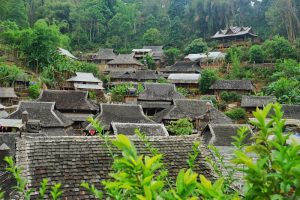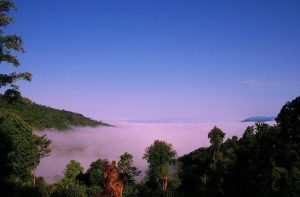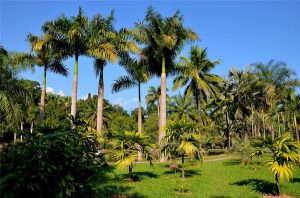Dianhong Black Tea and Puer Tea are two famous teas in Yunnan Province and China. So to experience the Puer Tea and Dianhong Black Tea culture is an unique and special activity in Yunnan tour. The mysterious tea culture in Yunnan will make your tourmemorable. 11 days tour prolongs your tea culture trip so that you can have enough time to visit the most famous tea plantation, tea factory and learn more about the history, development and tea-making process of Dianhong Black tea and Puer tea.
Highlights
- Experience the local life and ethnic culture.
- Appreaciate the charming landscape.
- Visit the charming destinations of tea production featuring diversified traditions saturated with tea elements.
Breif Itinerary
- Day 1 Arrive in Kunming
- Day 2 Kunming to Dali by Train
- Day 3 Dali-Xiaowan-Fengqing
- Day 4 Fengqing
- Day 5 Fengqing-Ancient Tea Horse Road Hiking-Xilinshan
- Day 6 Xilinshan-Yunxian-Lincang
- Day 7 Lincang-Xigui-Mengku
- Day 8 Mengku-Menglian-Lancang-Jingmai
- Day 9 Jingmai Tea Mountain
- Day 10 Jingmai-Menghai County-Jinghong
- Day 11 Jinghong-Yiwu
- Day 12 Yiwu-Menglun-Jinghong
- Day 13 Departure from Puer to Kunming
Detailed Itinerary
Day 1 Arrive in Kunming
Sightseeing and Activities: Arrive in Kunming
Accommodation: Kangle and Bangsheng Tea Wholesales Markets
Meals: None
Welcome to Kunming, the Spring City of China!
If time permits, we will pay a visit to Kangle and Bangsheng Tea Wholesales Markets located in the southe Kunming City.
Day 2 Kunming to Dali by Train
Sightseeing and Activities: Kunming to Dali by Train
Accommodation: Dali
Meals: Lunch
Welcome to Kunming, the Spring City of China! Upon arrival at the Kunming airport/train station, the driver will meet you in the arrival hall and escort you to Kunming train station. You’ll take the speed train to Dali (2 hours).
Pay a visit to Xiaguan Tuocha Tea Factory;
Visit Dali Ancient Town;
Day 3 Dali-Xiaowan-Fengqing
Sightseeing and Activities:Xiaowan Dam, Lancang-Mekong River, Xiangzhuqing Ancestor Tea
Accommodation: Fengqing
Meals: Breakfast, Lunch
Meet your dirver and local guide, we transfer to Lancang-Mekong River, the upper reach of Mekong River in China. Pay a visit to The Xiaowan Dam (小湾大坝) is an arch dam on the Lancang (Mekong) River in Nanjian County, Yunnan Province, southwest China. The primary purpose of the dam is hydroelectric power generation and it supports a 4,200 MW power station. Constructed between 2002 and 2010 by Huaneng Power International at a cost of ¥32 billion (nearly US$3.9 billion), it is the world’s second highest arch dam at 292 m (958 ft). It is also third highest among dams of all types behind Jinping-I and Nurek and the third largest hydroelectric power station in China.
Continue the driving to Xiangzhuqing village in Xiaowan township of Fengqing County. Pay a visit to Xiangzhuqing Acient Tea Tree or Jinxiu Ancient Tea Tree(锦绣古茶树). In Xiangzhuqing village, lies a massive, ancient tree. Colloquially referred to as the Mother tea tree, this magnificent giant is about 35 feet tall (which is extremely tall for a tea tree), and is so wide that it’s said that it takes eight people holding outstretched hands to full surround the tree. Besides her gargantuan size, this tree is also remarkable for its unmatched history. This ancient tree is recorded as being over 3,200 years old, it is called “the Mother of Tea Trees”.
Transfer to Fengqing County Town in the afternoon. Pay a visit to 3200 Tea Garden of Wyndm Hotel and do a short hiking around the tea garden.
Drink the refine Dianhong Black tea and enjoy the tea art ceremony in Fengqing.
Day 4 Fengqing
Sightseeing and Activities: Dianhong Tea Factory, Anshi tea plantation, Fengqing Cunfucius Temple, Fengqing Black Tea Market
Accommodation: Fengqing
Meals: Breakfast, Lunch
This morning, Visit Dianhong Tea Museum, former Fengqing Tea Factory and Fengqing Tea Research Center(凤庆县茶科所).
After lunch take a tour of the Dianhong Tea Factory(凤庆县工业区滇红集团) and Anshi tea village and plantation(中国滇红诞生地安石) where you can enjoy tasting the black tea and learn about the drying process of the tea leaves and the production.
Yunnan black tea, also known as ‘Dianhong’ (‘Dian’ is the short name for Yunnan province, ‘hong’ meaning red after the deep, red liquor of the brewed tea) is a fully oxidised tea grown high in the mountainous region of Lincang between 1680-1900 metres above sea level. Thanks to the high elevations and mild climate, the growing season in the province is long, with picking taking place from March through to November. If you’ve never tried Yunnan black tea before, then you’re in for a treat. Offering a delicate smokiness on the nose and tongue, Yunnan has layers of caramel and cocoa with light, peppery notes on the finish.
Visit Fengqing Cunfucius Temple.
Visit Fengqing Black Tea Market.
You will have dinner at Tongxin Fine Food Restaurant (同心美食楼) by Li Dehua(李德华) who is Charlie’s classmate.
Stay at Fengqing
Day 5 Fengqing-Ancient Tea Horse Road Hiking-Xilinshan Tea Garden-Anhe
Sightseeing and Activities: Daxueshan Mountain, Dawanshui River, Sanchahe River, The Ancient Wild Tea Forest, Wanshoushan Montain, Xilinshan Tea Mountain
Accommodation: Xilinshan Tea Factory
Meals: Breakfast, Lunch
In the morning, experience the Dianhong milk black tea in the hotel reception. Yunnan black tea is fermented and roasted. Tea polyphenols undergo an oxidative reaction under the action of oxidised syrup. Drinking Yunnan black tea with milk can aid the reduction of inflammation and protect the gastric mucosa, and it also has a certain effect on the treatment of ulcers.
Drive to Shidongsi Temple (Stone Cave Temple/石洞寺), start the hiking tour along the Ancient Tea Horse Road from Shidongsi to Fengqing Big Snow Mountain, visit the ancient tea in the original forest in Wanshoushan Mountain. After 6 hours hiking, we arrive at Jiuyaojie Mountain Pass and we will have a nice panoramic view of Xilinshan tea area. Arrive at Tangzikou Village(塘子口) and we finish the Ancient Tea Horse Road hiking and camp around the tea garden.
We will have a nice bonfire party with the help of the local tea farmers and have a nice camping night in Anhe Village (安和村) where is the origin of Xilinshan Anceint Tea (锡林山古茶) created by Charlie Lee (Li Rucan/李如灿). The local gorvernment will support us to arrange the tea tour and activities around Anhe Village of Xueshan Town (雪山镇).
Day 6 Xilinshan Tea Factory-Anhe -Xueshan Town-100KM/3 hours-Lincang
Sightseeing and Activities: Xilinshan Tea Plantation, Xilinshan Tea Factory, Tea Picking and Tea Making, Xueshan Town Tea Resourses Forum
Accommodation: Lincang
Meals: Breakfast, Lunch
This morning, we will have a nice experience of Dianhong Black Tea making and tea pick in Xilinshan tea platation in Anhe Village (安和村).
We will have lunch in Xueshan Town, take a tea culture conference with local officials as well.
Transfer along the Nanqiao Reservior,pay a visit to the natural Dakongbeng Hot Spring (大控蚌温泉), cook the eggs prepared by us in the wild hot spring.
Continue the dirving to Yunxian County, drive to Lincang City. Meet the local officials to have dinner together and enjoy Wa ethnic bonfire party with Wa ethnic people.
Stay in Lincang City
Day 7 Lincang-Xigui-Bingdao-Mengku
Sightseeing and Activities: Xigui Tea Mountain, Bingdao Tea Mountain
Accommodation: Mengku
Meals: Breakfast, Lunch
In the morning, drive to visit Xigui Ancient Tea Garden.
Visit Manglu Tea Mountain in Xigui located at the bank of Lancang-Mekong River. Visit Xigui tea factory and have lunch in the local family.Visit Nahan(纳罕) and Manggan(曼岗) tea villages as well.
Xi Gui is located in Lincang county, Lincang city, Yunnan. It is developed along the bank of Mekong River (called as Lincang Jiang in Chinese). The fertile soil brought by the Mekong River is very rich in calcium, and it seems to be contributing body.
Recently the road condition to Xi Gui has been drastically improved. It takes less than 5 hours to reach Xi Gui by car from Lincang city center. Under the circumstances, there are increasing number of high-amateur and tourist from all over China and other countries. Generally, they are less experienced in evaluating the quality of tea. As a result, the tea that gives very floral scent is very popular. This kind of flavor can be easily produced if the manufacture lightly fry tea and retain more enzymes that develop floral scent like oolong during sunshine drying on account of enzymatic fermentation. However, the raw pu-erh tea produced with light pan-frying is not suitable for long storage. It develops sort of black tea flavor and noise in taste in a Rutsan Tea(锡林山古茶).
Drive to Mengku Township first, then drive to Bingdao village(冰岛), which is Luhu tribal village surrounded by green mountains and is the origin of the tea plantation in China. You will see several huge ancient tea trees over 2000 years old! You will have a chance to see this rare, unique village of the Lahu people. They are known to wear colorful, traditional clothes.
Visit the 5 villages of Bingdao including Dijie (地界), Bingdao Laozhai (冰岛老寨), Bawai (坝歪), Nanpo (南迫) and Nuowu Village(糯五). Experience the tea making in Dijie village and have lunch there.
Bing Dao Puerh is named after its village of origin, Bing Dao Village of Mengku County, Yunnan Province, China. Bing Dao means “a village with bamboo gate” in Thai. Local villagers, mainly tribal Thai people, have a documented tea growing history dating back to the 15th century. Bing Dao is made from ancient tea trees (gu shu) more than 300 years old and is stone-pressed in the traditional manner. The trees grow on the sunny side of Bang Ma Mountain, more than 2500m above sea level. As a high mountain tea, Bing Dao brews sweet, rich, and is pleasantly refreshing with almost no astringency. Moreover, it has a lasting sweet after-taste (huigan) in the throat, and is sheng jin in character, meaning that it leaves the palate feeling quenched. The fragrance is lightly citrusy and flowery, with a note of wild honey. Our Bing Dao cake is made with old tea leaves and is a great candidate for further aging.
In the late afternoon, you can also have an option to visit Xiaohusai(小户赛) Tea village and Dahusai Village. Stay in the local hostel in tea mountain.
Stay in Mengku Town
Day 8 Mengku-Jingmai
Sightseeing and Activities: Lancang County, Menglian County, Jingmai Tea Mountain
Accommodation: Jingmai
Meals: Breakfast, Lunch

This morning, drive about five and half an hour to Jingmai Mountain en route Menglian and Lancang Counties. Visit Jingmai Tea Mountain and have a look at the flow of ‘tea bosses’ by climbing up the hill. Admire the ancient tea gardens, the largest of their kind in the world. Jingmai is situated deep in the Southwest corner of Yunnan Province. These ancient forests border Burma and hide smuggler trade routes still in use today. This biodiversity of the region and the nearly untainted old world methods and rituals of tea cultivation and harvesting make this area unique among world tea production.
The Chinese government in 2013 applied for the “Ancient Tea Plantations of Jingmai Mountain” to become an UNESCO World Heritage Site. There are 4 grape wine and 2 coffee related World Heritage properties already, but none yet for tea. If any place in the world deserves it, Jingmai would be it.
Day 9 Jingmai Tea Mountain
Sightseeing and Activities:Learn Puer tea-making process, Wengji Village, Jingmai Village and Mangjing Village
Accommodation: Jinghong
Meals: Breakfast, Lunch
In the morning, enjoy the sunrise view of Jingmai tea mountain, do some hiking in the tea mountains.Visit Wengji Village, Jingmai Village and Mangjing Village.
Wake up and breathe fresh air in the mountain, experience local ethnic culture by walking around in Jingmai village. You could visit some families to learn tea processing.
Jingmai Tea Mountain is located in Huimin Township, Lancang Lahu Autonomous County, Pu’er City, east to Menghai County of Xishuangbanna , and west to Myanmar. It is the junction of Xishuangbanna, Pu’er and Myanmar. Jingmai Mountain is known as for Pu’er tea. In the ancient tea gardens of thousands of mu in Jingmai and Mangjing, dozens of villages have formed a landscape of 28,000 mu of Jingmai Mountain ancient tea gardens, including Banggai Village (帮改村), Longbang Village (笼蚌村), Nanzuo Village (南座村), Nanai Village (那耐村), Jingmai Dazhai Village(景迈大寨村), Mengben Village(勐本村), Manggeng Village (芒埂村), Nuogan Village(糯干村), Manghong Village(芒洪村), Wengwa Village(翁哇村), Wengji Village (翁基村), Laojiufang Village (老酒房村). The fresh tea leaves of each village have been sold in the name of “Pu’er Tea in Jingmai Mountain”.
Day 10 Jingmai-Menghai County-Jinghong
Sightseeing and Activities:Jingzhen Octagonal Pavilion, Nannuoshan Mountain
Accommodation: Jinghong
Meals: Breakfast, Lunch

In the morning, drive to Menghai County, visit Jingzhen Octagonal Pavilion.
Then drive about two and half an hour to visit the tea plantation of Nannuoshan Mountain in Menghai County. Nannuo Mountain is famous in China and abroad as the home of the “King of Tea Tree,” a human cultivated 800+ year old tree. Fine tea tree varieties and superior natural conditions produce outstanding Nannuo Mountain tea products. Nannuo Mountain Peacock tea is a 400 gram fresh Pu-erh cake. It possesses a green, glossy luster and has leaves and buds that are plump, strong, and tender. The strips of tea unfold with prominent fine hair. When brewed, the tea liquor is a bright golden yellow with a strong, but mellow and refreshing flavor. It has a sharp kougan(feeling in the mouth) and stimulates salivation. The tea has strong and distinctive aroma.
After that, drive to Jinghong City.
Day 11 Jinghong-Yiwu
Sightseeing and Activities: Yiwu Old Town, local family, tea mountains and plantation
Accommodation: Yiwu
Meals: Breakfast, Lunch

Today, you will head for Yiwu Town, a small town once boomed due to tea trade in the history, see the old part of town and the stele erected in Qing Dynasty that recorded the trade situation at that time. It is a main planting area of traditional Puer Tea. Visit the Yiwu Old Town, then pay a visit to local families that are still producing Pu’er Tea the traditional way. Afterwards, visit the tea mountains and plantation.
Stay overnight in Yiwu Town
Day 12 Yiwu-Menglun-Jinghong
Sightseeing and Activities: Menglun Botanical Garden, Jinghong City,Gaozhuang Night Market
Accommodation: Jinghong
Meals: Breakfast, Lunch
Get up in the early morning, driv to visit Menglun Botanical Garden. Menglun Botanical Garden is in Menglun town of Menglai county around 80km away from Jinghong city, Menglun tropical botanical garden is the largest tropical botanical garden in China. It was established in 1959 by Chinese famous botanists including Prof. Cai Xitao, who devoted all his life to related scientific research with remarkable achievements. The garden boasts more than 4000 species of tropical plants covering an area of 900 hectares, quite a few of which are rare elsewhere, forming a colorful botanical landscape.
Day 13 Departure from Jinghong
Sightseeing and Activities: Departure from Jinghong
Accommodation:
Meals: Breakfast
You will fly from Jinghong to Kunming.
Service ends.
Recommended Hotels
| City | 5 Star | 4 Star | 3 Star | Hostel |
|---|---|---|---|---|
| Kunming | Soluxe Hotel | James Joyce Coffetel | Yuhu Garden Hotel | Local Guesthouse |
| Fengqing | Fengqing Wyndham Hotels & Resorts | Dianhong Hotel | Fengqing Puningyu Courtyard Inn | Local Guesthouse |
| Lincang | Joy Style Hotel | Golden Begonia Dong Gang Hotel Lincang | Yunchen Hotel | Local Guesthouse |
| Mengku | / | / | Shibazhai Hotel | Local Guesthouse |
| Jingmai | Jingmai Brilliant Resort and Spa | Jingmai Bolian Resort & Spa | Lancang Guchaju Inn | Bulang Pricess Guesthouse |
| Jinghong | Jinghong InterContinental Hotel | Dai Garden Hotel | Duchang Hotel | Jinghong Daixiang Vocational Hotel |
| Xilinshan | Camping in Xilinshan tea mountain | Camping in Xilinshan tea mountain | Camping in Xilinshan tea mountain | Camping in Xilinshan tea mountain |
Service Included:
1. Admission fees for all of the sightseeing spots listed in the itinerary;
2. Meals as listed in the itinerary;
3.Accommodation with breakfast as listed in the itinerary;
4.Private English-speaking tour guide and vehicle for transfers & sightseeing;
5.Service charge & government taxes;
6. Luggage transfers between airports and hotels;
7. Two bottles of mineral water each day;
8.Travel Agency’s Responsibility Insurance.
9. Train tickets from Kunming to Dali;
10.Domestic air tickets from Puer to Kunming(Economy Class).
Service Excluded:
1.Any arrival and departure international airfares or train tickets;
2.Chinese visa fees;
3.Excess baggage charged by Airlines;
4.Single room supplement;
5.Tips to guides and drivers;
6.Personal expenses and gratuities to service staff;
7.Personal travel accident insurance;
8.All optional programs.



1 Comment
Dianhong Black Tea and Puer Tea are two famous teas in Yunnan Province and China. So to experience the Puer Tea and Dianhong Black Tea culture is an unique and special activity in Yunnan tour. The mysterious tea culture in Yunnan will make your tour memorable. 11 days tour prolongs your tea culture trip so that you can have enough time to visit the most famous tea plantation, tea factory and learn more about the history, development and tea-making process of Dianhong Black tea and Puer tea.